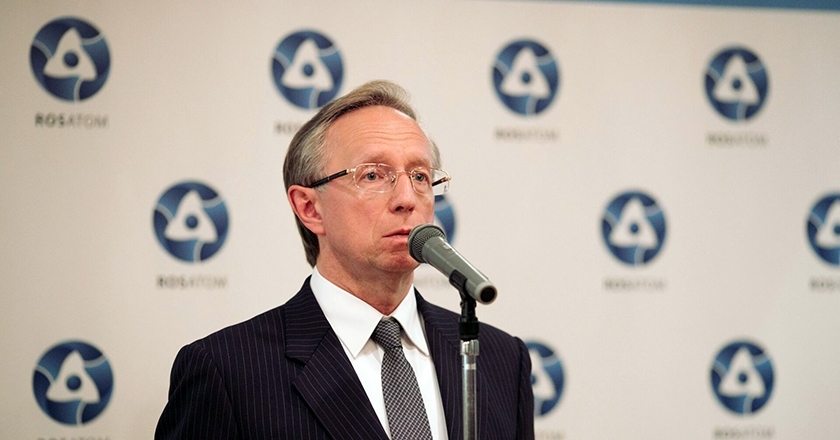“On the Georgian side, the modernization of the road infrastructure, including the construction of a tunnel under the Jvari Pass, is underway, while for our part, we are working on the expansion of the Zemo Larsi checkpoint. Actions on both sides of the border are closely coordinated not to cause the shrinkage of the carrying capacity of this arterial route.
We are confident that the further normalization of relations between our two countries, which have such a significant overlap in history and culture, and whose peoples are basally intertwined, is completely in line with the interests of our people,” remarks the deputy.
The construction of the 9-kilometer Kvesheti-Kobi tunnel began in May 2021, with the drilling currently underway in the rocks of the Milliona mountain. Within the project, a total of 23 km of asphalt-concrete road, 5 bridges, and 5 tunnels will be built. According to the Roads Department, the new road will shrink the driving distance between Kvesheti to Kobi by 11 km, and cut travel time from one hour to 15 minutes.
The total cost of the project is 1.2 billion GEL. The construction is being carried out with the financial sponsorship of the Asian Development Bank (ADB) and the European Bank for Reconstruction and Development (EBRD). The project is set to complete in 2024. The new road passes across the Khada Gorge and is part of the internationally significant road connecting Georgia and Russia. Due to the proneness of Jvari Pass to heavy snowfall and avalanches in winter months, the said road often closes down for days at a time, causing freight trucks from Russian, Turkish, Armenian, and Azerbaijani transport companies to bunch up in a long line of traffic from both sides. When the Jvari Pass is closed, residents of Kazbegi are also faced with passage difficulties.
When asked in an interview with the Russian media how the recent protests in Tbilisi can affect bilateral relations, Galuzin said that behind the protests held on March 7-9 in Tbilisi, the Russian government sees the invisible guiding hand of the West, the arsonists seeking to destabilize the situation in Georgia.
On March 14, the chairman of the ruling party Georgian Dream Irakli Kobakhidze said that the endgame of public demonstrations against the Russian law was to topple the government. Earlier, Russian Foreign Minister Sergey Lavrov made a similar statement, according to which the law on agents was an excuse to overthrow the government of Georgia.
On March 7-9, tens of thousands of people in Tbilisi came out in protest of the adoption of the Russian-sourced law termed “agents of foreign influence”. Georgian Dream supported the bill that would allow them to place independent media and non-government organizations in a chokehold at will on the first reading on March 7 and rejected it on March 10, as a result of public outcry, unrelenting protests, and unprecedented international pressure. Protesters were dispersed by the government using suffocating and tear gas, water jets, and pepper spray.
According to official data, in 2022, Georgia's economic reliance on Russia has grown significantly, which poses dangers. Russia uses economic dependence, especially a disproportionately one-sided one, as leverage for exerting political pressure on countries and arm-twisting them into compliance.
Last year, Georgia received about 3.6 billion USD in income from Russia through remittances, tourism, and goods export, which is 3 times more than the income received from Russia from the same sources in 2021. According to Transparency International Georgia's research, this figure is twice as high as even the income received from Russia before the start of the Covid pandemic, in 2019.
In 2022, income generated from remittances, tourism, and goods exported to and from Russia makes up 14.6% of Georgia’s GDP, compared to 6.3% of the previous year, and the highest point of 9.9% in 2018.
In 2022, about 15,000 Russian companies were registered in Georgia, which is 16 times more than the figure for 2021. A total of 22,400 Russian companies are registered in Georgia, and 66% of them were registered after the start of the war in Ukraine.
In 2022, wine exports to Russia increased by 23% and amounted to 161 million USD. The Russian market holds 64% of Georgian wine exports, which is the highest figure since 2013, after the return of Georgian wine to the Russian market. Russia intends to create a laboratory in Georgia and issue Russian wine certificates.
After the start of the war, the import of oil products (fuel) from Russia increased the most - by 482 million US dollars (5 times more). The share of Russian fuel in imports was 51%. The import of food products increased by 45% and amounted to 442 million dollars.
Despite the 46% increase in electricity imports from Russia, Russian electricity accounts for only 2.6% of Georgia's domestic consumption.
In 2022, the share of Russian wheat and wheat flour in the total import of wheat and wheat flour of Georgia was 97%. 78% of wheat flour consumed in Georgia comes from Russia.
In 2022, the growth rate of the arrival of visitors from Russia accelerated significantly - a total of 1.1 million visitors arrived.
In 2022, Russian citizens opened more than 60,000 accounts in Georgian banks, and the amount of money placed in their current accounts and deposits increased almost 4 times compared to 2021 and reached 2.8 billion GEL; Some of the Russian visitors are actually immigrants and settled in Georgia for a long-term.
The former chief prosecutor of Georgia, Otar Partskhaladze, who was granted Russian citizenship, offers investment business projects and immigration benefits to clients, including in Georgia, through the Moscow Business Brokerage company. Immigration benefits include obtaining permanent residency, work visas, and citizenship through investment.






